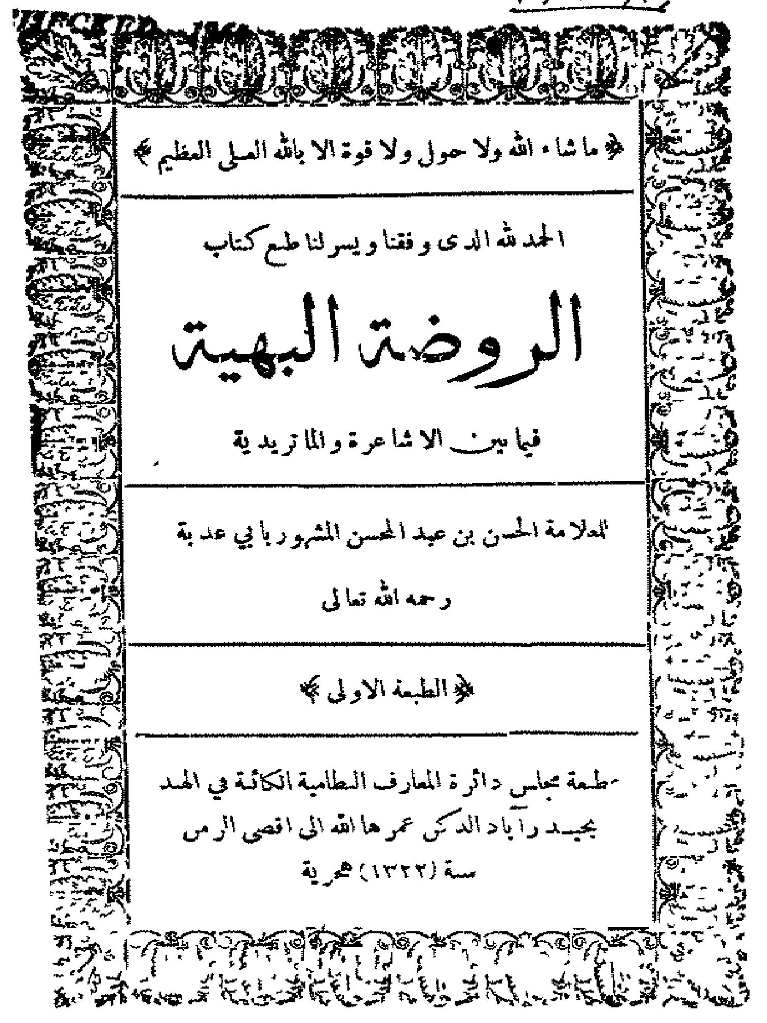Nur al-Din Hasan ibn Abd al-Muhsin Abu al-Salah Zadeh (d. ca. 1225H / 1810CE), known as Abu Adhaba, compiled a brief treatise (al-Rawda al-Bahiyya fi-ma bayn al-Asha`ira wal-Maturidiyya) summarizing the differences between these two theological, kalam-based schools. He listed 7 issues of superficial disagreement, and 6 issues where the disagreement has more substance. Note that most of these issues are high-level academic issues of limited relevance to practical life, and the non-scholar need not concern himself with them. (Indeed, it may do more harm than good for someone who has not mastered the basics of Islamic theology (`aqida) to delve into these issues.
Superficial Issues
- Is it permissible to say, ‘I am a believer if God wills,’ ?
- Unbelievers who later accepts Islam: in the period before they believe are they described as شقي (wrteched) or سعيد (fortunate)?
- Can it be said that God bestows favor on an unbeliever?
- Does the status of ‘Messenger of God’ remain in effect after death in a literal sense?
- Does God’s will (irada) the same as God’s approval (rida)?
- What is the status of someone who believes by blind faith alone?
- By what metaphysical mechanism do human beings acquire (kasb) their deeds?
Issues of Substanace
- The hypothetical possibility of a righteous person being punished by God
- If the obligation to know God based on human reason, or scripture?
- Are God’s Attributes of Action eternal or not?
- It is possible to hear that aspect of God’s speech that is considered an eternal attribute?
- The hypothetical possibility of God’s tasking a person beyond their capability
- Regarding the precise nature of `isma (inerracy) of the Prophets.
NOTE: The above lists are not necessarily comprehensive. For example, we could potentially add at least two more:
- Regarding the permissibility of figurative interpretation of descriptions of God that might be deemed anthropomorphic. (Mentioned by Mulla `Ali Qari (d. 1014H / 1606CE), in his Sharh al-Fiqh al-Akbar)
- Whether good and evil can be discerned by human effort without the aid of revelation. (Mentioned by Ibn Kamal Pasha (d. 940H / 1534CE)

